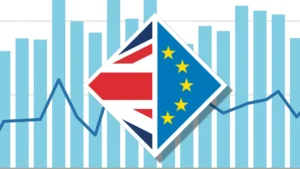What is the Office for Budget Responsibility? What is the role of the OBR?

The performance of the UK government’s spending plans is tracked by the Office for Budget Responsibility (OBR).
Forecasts on the status of the public finances and the economy are released twice a year.
Describe the OBR and its functions.
The OBR evaluates the state of the economy in the UK. Although it is not part of the government, it collaborates closely with the Treasury. The government provides the OBR with information on its tax-raising and tax-cutting plans as well as its spending intentions prior to these announcements.
Over the following five years, the OBR forecasts the economy and verifies the data.
Why are OBR projections important?
The OBR evaluates the government’s likelihood of adhering to the guidelines it has established for economic management based on its projections.
Financial investors are interested in its assessment of the soundness of the government’s plans. They purchase government bonds, a form of IOU, to assist in financing government expenditures.
When and why was the OBR established?
During the 2010 Conservative-Liberal Democrat coalition administration, the OBR was established.
Previously, the government created its economic projections.
Does OBR’s advice have to be followed by the government?
The incoming Labour government announced in July 2024 that it will enact new legislation to stop any administration from ignoring the OBR in the future. To safeguard pension funds, the Bank of England had to intervene after the pound plummeted, indicating that foreign investors had lost faith in the government’s policies.
The OBR offered to create a draft economic prediction, but Truss and her chancellor, Kwasi Kwarteng, had turned it down.
Many claimed that one of the main causes of the lack of investor confidence was the choice to forego consulting the OBR.
IMF-bolstered UK economic projection

With the biggest upward revision for any major country, the International Monetary Fund (IMF) increased its forecast for UK GDP this year by 0.4% to 1.1%. The IMF’s revised estimate of UK performance is a dramatic improvement over its July forecast of 0.7% growth this year and an increase of 0.6% over its April assessment.
Its 2025 GDP growth forecast of 1.5% is unaltered.
The IMF’s improvement of our growth prediction for this year is encouraging, but I know there is still more work to be done,” Ms. Reeves stated in response to the announcement.
Worldwide issues
The authors of the paper come to the conclusion that the “global battle against inflation has largely been won” and that average global rates will settle around 3.5% next year, which is lower than the average from 2000 to 2019. The IMF lists a number of difficulties, such as regional crises, such as those in the Middle East and Ukraine; the necessity of tightening fiscal policy while easing monetary restraint; and a possible slowdown in China.
An alert to “stabilize debt”
The IMF warns in Treasury and No. 11 that countries must stabilize debt and “rebuild much-needed fiscal buffers” following years of high borrowing in response to the epidemic and post-COVID economic adjustment.
Reeves applauds the improved growth forecast from the IMF.

As it increased its growth prediction for this year, the International Monetary Fund (IMF) stated that the UK economy would “accelerate.”
Three months after predicting a 0.7% growth rate, the powerful international organization now projects a 1.1% growth rate for the UK this year.
This would place the UK in the middle of the pack of nations worldwide, albeit slowly in comparison to earlier eras. Richer nations have made up for missed epidemic growth, according to the IMF’s global prediction, which demonstrates how resilient the global economy has become.
In the run-up to the presidential election, the United States continues to beat all of its rivals in the G7 group of advanced countries. Its economy is expected to expand by 2.8% this year and 2.2% the following year.
On Tuesday, Treasury Secretary Janet Yellen said that the United States would implement “strong new sanctions targeting those facilitating the Kremlin’s war machine” during the IMF meeting in Washington.
Since Russia invaded Ukraine in February 2022, the United States has taken several measures against the country, such as prohibiting banks from doing business with sanctioned Russian firms and imposing limitations on the supply of technology like drones and microchips.
